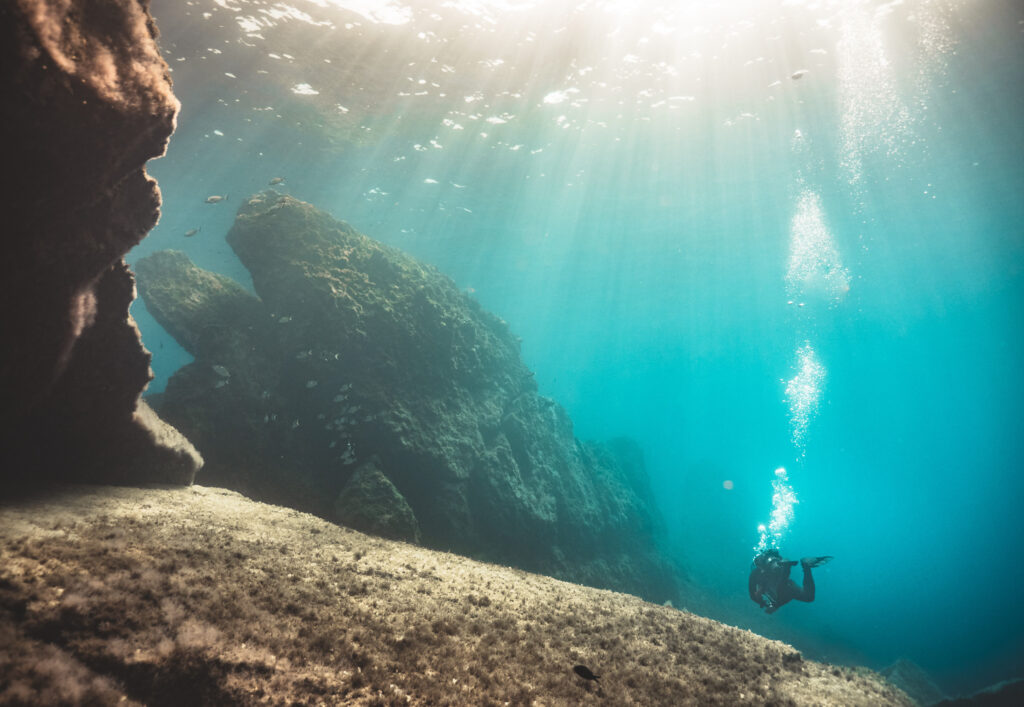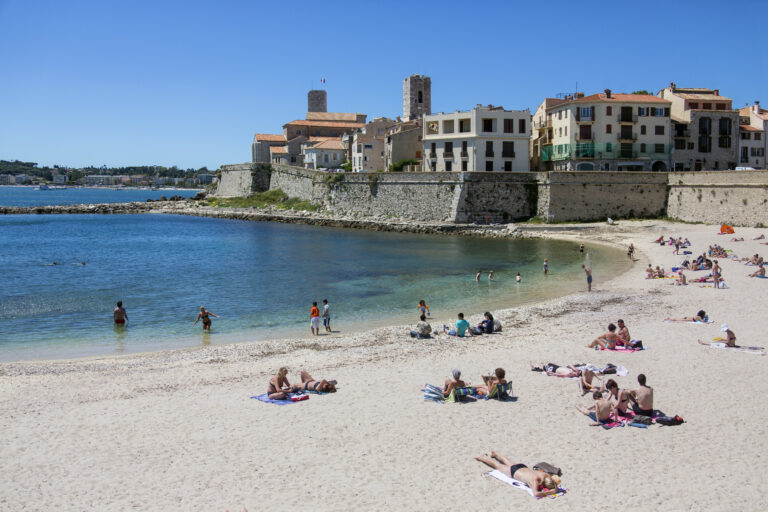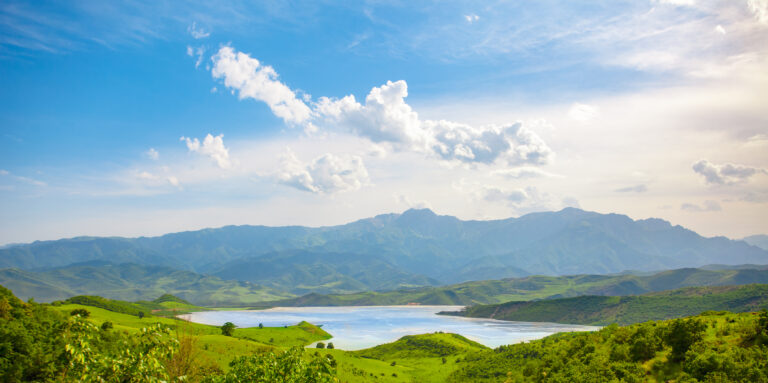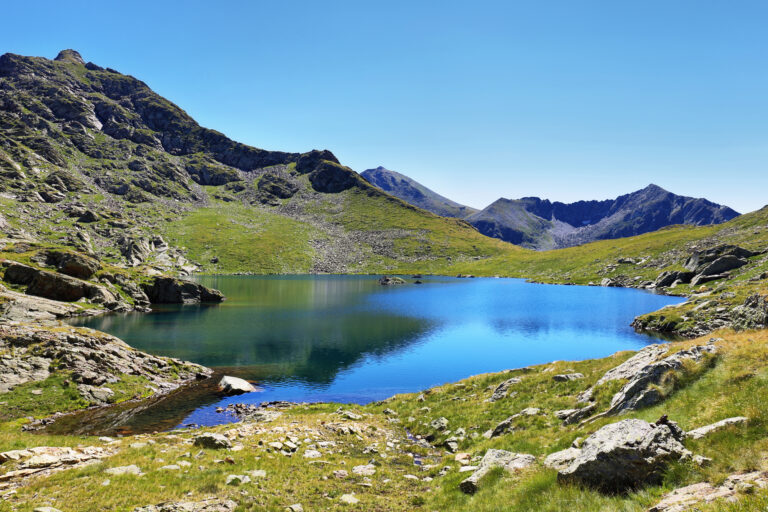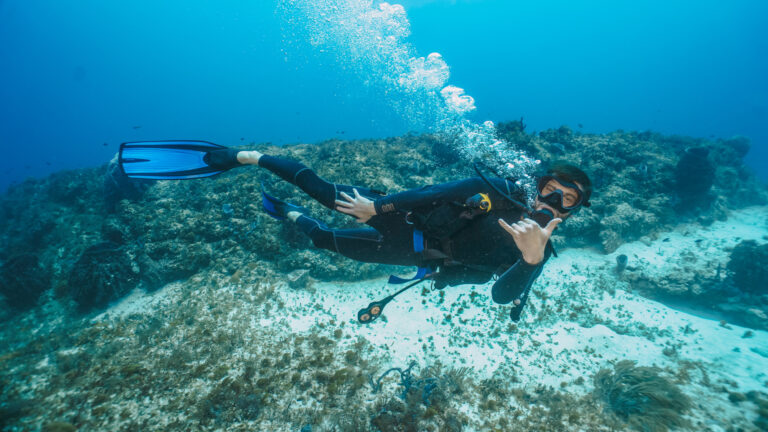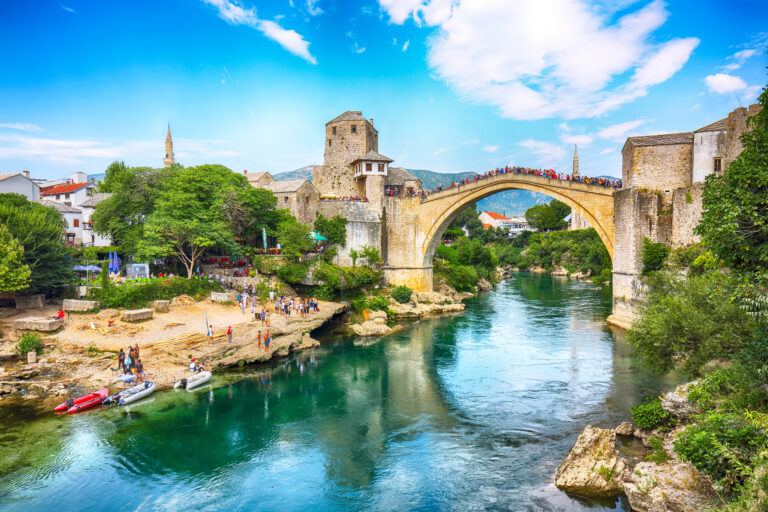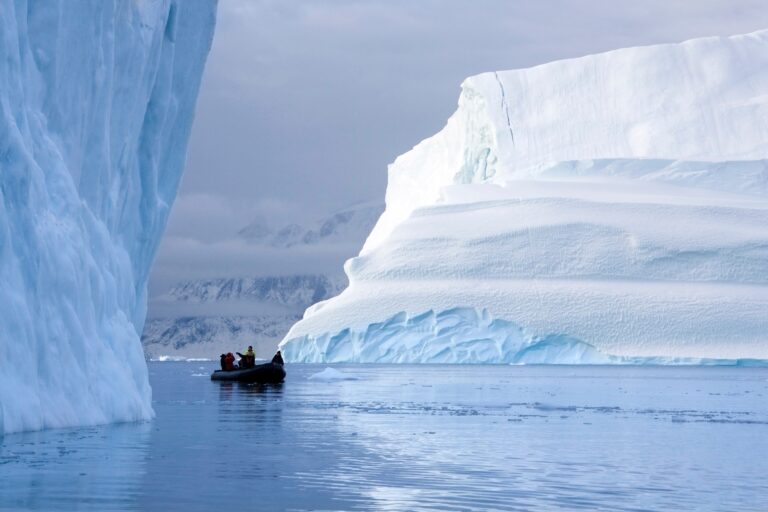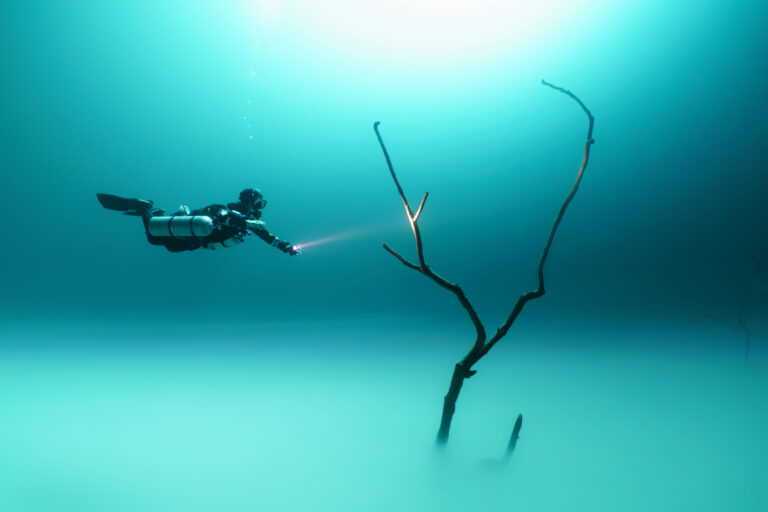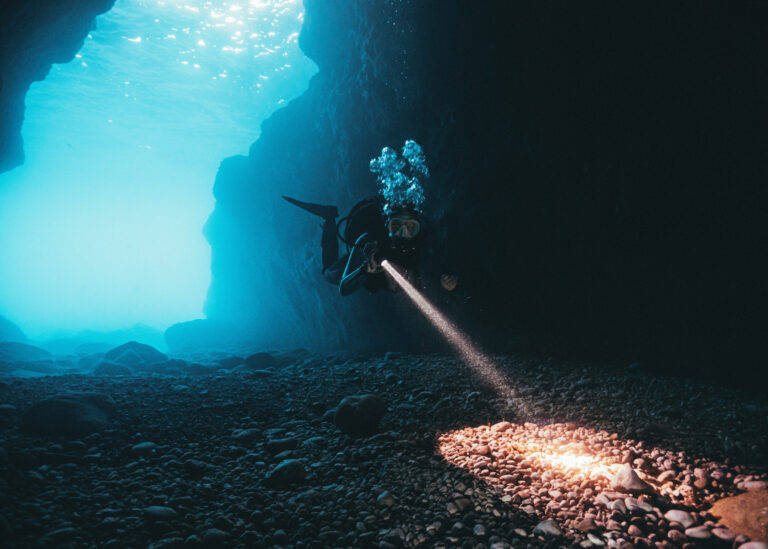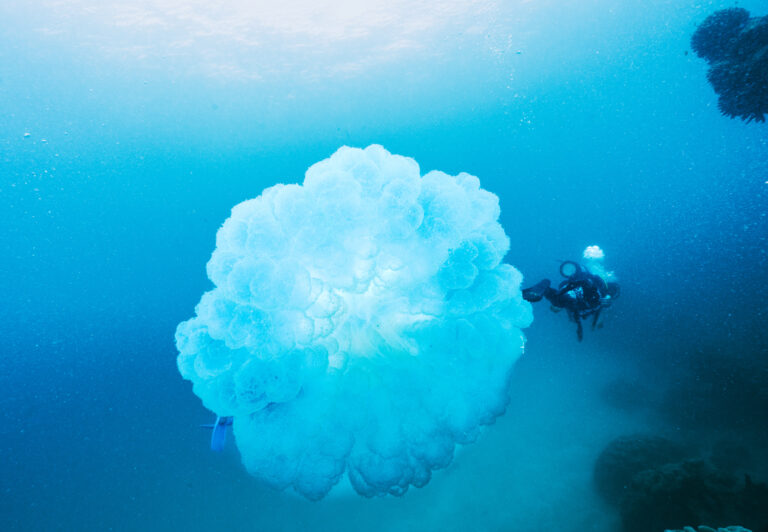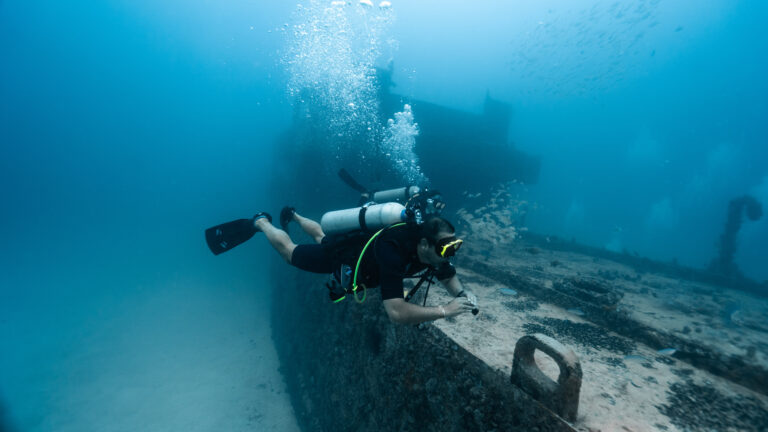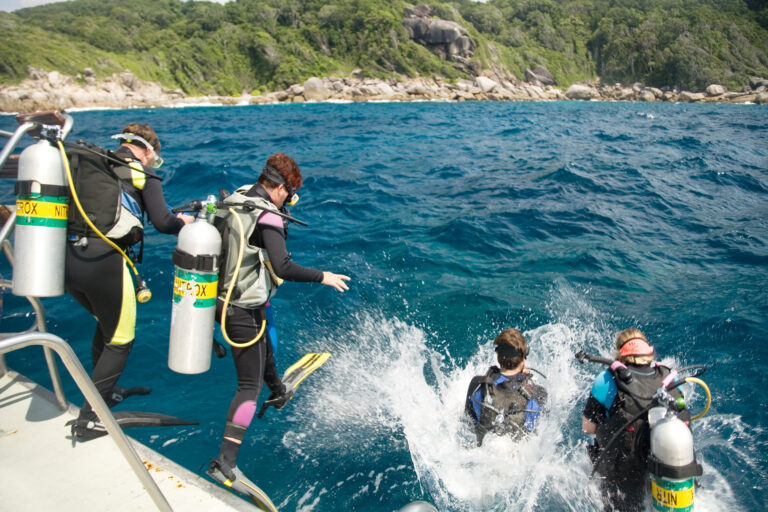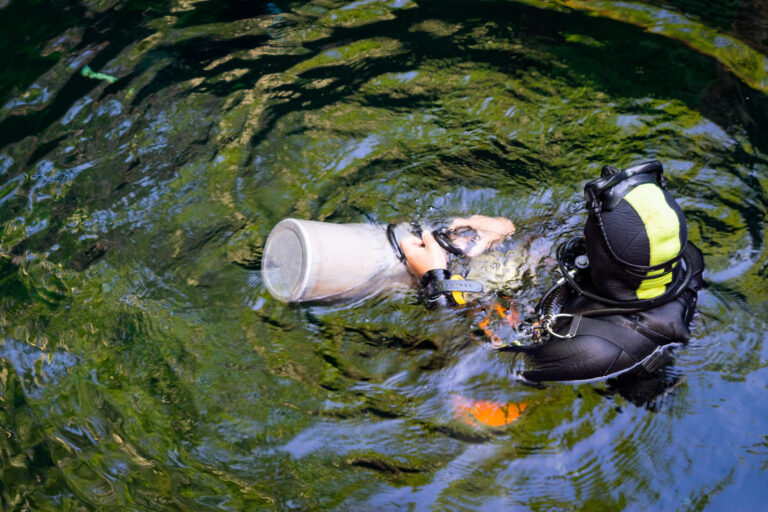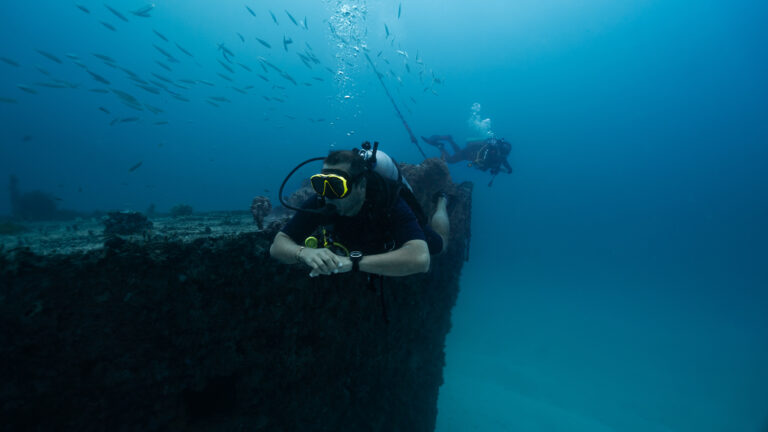SCUBA DIVERS’ TRAVEL GUIDE TO Netherlands
The Netherlands is a small country with a big passion for scuba diving. Whether you are looking for shipwrecks, marine life, or underwater landscapes, you will find something to suit your taste in this diverse and dynamic destination. Dive into the North Sea and explore the rich history of the Dutch maritime heritage, with over 10,000 wrecks waiting to be discovered. Or head to the Grevelingen and Oosterschelde, former estuaries that are now separated from the sea by dams, creating unique and protected environments for a variety of species. Here you can witness the spectacular mating ritual of the cuttlefish in spring, or marvel at the colorful anemones, sponges, and nudibranchs that adorn the walls and reefs. If you prefer freshwater diving, you can choose from many lakes and rivers across the country, such as the Vinkeveense Plassen, where you can enjoy clear water and sandy islands. The Netherlands is a scuba diving paradise that will surprise and delight you with its beauty and diversity.
LOCATION AND GEOGRAPHY
The Netherlands, a country renowned for its picturesque canals and tulip fields, may not be the first destination that springs to mind for scuba diving, yet it offers a unique underwater experience shaped by its distinctive geography. Much of the Netherlands lies below sea level, with the North Sea bordering its western coast, providing a gateway to a marine world that is surprisingly rich and diverse. The Zeeland region, in particular, is a magnet for divers, with the Oosterschelde and Grevelingen estuaries offering clear waters and an abundance of marine life, including seals, crabs, and a variety of fish species. Inland, numerous freshwater lakes and sand extraction pits have been repurposed into dive sites, with submerged forests, peat walls, and even purposely sunk objects like boats and vehicles to explore. The flat landscape of the country means that most dive sites are easily accessible, and the intricate network of rivers and canals that crisscross the country also provide unique diving opportunities, making the Netherlands a surprising and rewarding destination for divers seeking something different from the typical tropical reef.
VISA AND ENTRY REQUIREMENTS
Before planning your underwater adventure in the Netherlands, it’s essential to understand the visa and entry requirements. The Netherlands is part of the Schengen Area, which means that U.S. citizens can enter visa-free for tourism or business for stays of up to 90 days within a 180-day period. For citizens of other countries, the requirements may vary; some may need to apply for a Schengen visa prior to arrival. It’s important to check the latest information from the Dutch embassy or consulate in your home country. Ensure your passport is valid for at least six months beyond your planned date of departure from the Schengen area. Additionally, you may be asked to show proof of sufficient funds, a return airline ticket, and proof of accommodation. Once you’ve taken care of these entry formalities, you can look forward to exploring the rich underwater landscapes and vibrant marine life that the Netherlands has to offer.
GETTING TO Netherlands
Getting to the Netherlands for a scuba diving adventure is a straightforward experience, thanks to the country’s excellent connectivity and modern infrastructure. The primary international gateway is Amsterdam’s Schiphol Airport, one of Europe’s busiest airports, which offers flights from numerous global airlines and connections to major cities worldwide. Upon arrival, divers can take advantage of the efficient Dutch public transportation system, including trains, buses, and taxis, to reach coastal areas like Zeeland, which is renowned for its clear waters and rich underwater life. For those who prefer to drive, car rentals are readily available at the airport, providing the flexibility to explore the country’s diverse diving spots at your own pace. Whether you’re coming from nearby European countries or traveling from across the globe, the Netherlands is accessible and welcoming to divers eager to explore its underwater treasures.
BEST TIME TO DIVE
The best time to scuba dive in the Netherlands is generally from May to September when the water temperatures are more comfortable, ranging from 15°C to 20°C (59°F to 68°F), and the visibility is at its peak. During these months, the North Sea and freshwater lakes warm up, and the underwater flora and fauna become more active, offering a more vibrant diving experience. The Zeeland region, in particular, is renowned for its clear waters and rich marine life during this period. However, divers should be prepared for the possibility of variable weather conditions and should always check local dive reports before planning their excursions. Outside of this prime season, diving is still possible, especially for those equipped with drysuits, but expect colder temperatures and reduced visibility. Keep in mind that the Dutch waters can be challenging due to currents and tides, so it’s advisable for less experienced divers to visit well-known dive sites and consider guided dives with local experts.
ACCOMMODATION OPTIONS
Accommodation options for scuba divers in the Netherlands cater to a range of preferences, from the practical to the luxurious. Given the country’s compact size, divers can choose to stay in charming coastal towns or opt for urban hotels in cities like Amsterdam or Rotterdam, with easy access to dive sites via short drives or organized tours. For those seeking proximity to the North Sea dive spots, Zeeland offers a variety of options, including cozy bed and breakfasts, holiday parks with self-catering bungalows, and waterfront hotels that often provide gear storage and rinse facilities. Inland, freshwater dive sites such as Vinkeveen Plassen are near campsites and rental chalets, ideal for those who wish to be close to nature and enjoy a serene environment after a day underwater. Dive resorts and specialized dive centers in the Netherlands sometimes offer stay-and-dive packages, simplifying logistics for divers by combining accommodation, meals, and multiple dives into one convenient bundle. Whether you’re looking for a rustic retreat or a city break with diving adventures, the Netherlands offers a comfortable base for every underwater enthusiast.
DIVE OPERATORS AND DIVE SHOPS
In the Netherlands, a country renowned for its historic canals and vibrant marine life in the North Sea, dive operators and dive shops are well-equipped to cater to both novice and experienced divers seeking to explore underwater wonders. Dutch dive shops typically offer a range of services, from equipment rental and air fills to guided tours and PADI-certified training courses. The dive operators are known for their professionalism and intimate knowledge of the local dive sites, including the Zeeland region’s famous Oosterschelde National Park, where divers can encounter sepia and cuttlefish, or the freshwater lakes such as Vinkeveen, with its clear waters and sunken objects to discover. Many shops also organize special excursions to explore the numerous wrecks scattered along the Dutch coastline, providing a unique glimpse into maritime history. With a focus on safety and environmental conservation, the dive operators in the Netherlands ensure that each underwater adventure contributes to the preservation of the aquatic ecosystem while offering an unforgettable experience.
TRANSPORTATION WITHIN Netherlands
Transportation within the Netherlands is efficient and convenient, making access to scuba diving locations across the country hassle-free for enthusiasts. The country’s compact size allows for quick travel between dive sites, whether you’re heading to the clear waters of the North Sea or exploring the freshwater lakes and rivers inland. The well-connected train network is a reliable option for reaching coastal towns, while renting a car can offer more flexibility for carrying gear and reaching off-the-beaten-path dive spots. For a truly Dutch experience, you can even cycle to some of the closer dive sites if you’re staying nearby. Additionally, local dive shops often provide transport services for divers and their equipment to and from dive locations, ensuring that even without a personal vehicle, you can immerse yourself in the underwater beauty that the Netherlands has to offer.
CURRENCY AND PAYMENT METHODS
When traveling to the Netherlands for scuba diving, it’s important to note that the official currency is the Euro (EUR). Most established dive shops, resorts, and restaurants in diving areas will accept major credit cards such as Visa, MasterCard, and sometimes American Express. However, it’s advisable to carry some cash for smaller purchases, tips, or in places where cards may not be accepted, such as remote dive sites or local markets. ATMs are widely available, especially in urban areas and near tourist hotspots, but it’s wise to check with your bank about international withdrawal fees. Contactless payments via mobile devices are also becoming more common. Keep in mind that while the Netherlands is known for its digital payment infrastructure, having a mix of payment methods is prudent to ensure a smooth experience as you explore the underwater wonders of this beautiful country.
LANGUAGE AND COMMUNICATION
When diving in the Netherlands, communication is predominantly conducted in Dutch, the official language of the country. However, given the international nature of the scuba diving community, English is widely spoken and understood within the diving industry, from dive shops to instructors. It is advisable for divers to familiarize themselves with basic Dutch phrases as a courtesy, but they can expect dive briefings, safety instructions, and courses to be available in English. Additionally, the universal language of scuba diving—hand signals—is used underwater for non-verbal communication. Divers should ensure they are well-versed in these signals for essential interactions with their dive buddies and guides. It’s also worth noting that in the Dutch Caribbean territories, such as Bonaire, English is commonly spoken alongside Dutch, Papiamento, and Spanish, reflecting the islands’ diverse cultural influences.
LOCAL CULTURE AND ATTRACTIONS
The Netherlands, while renowned for its picturesque canals, tulip fields, and windmills, may not be the first destination that comes to mind for scuba diving, yet it offers a unique underwater experience that reflects its rich maritime history and vibrant local culture. After exploring the depths of the North Sea, where divers can encounter fascinating wrecks and marine life, visitors can immerse themselves in the local culture by enjoying traditional Dutch cuisine, such as herring or stroopwafels, at a cozy café. The country’s artistic heritage is palpable, with opportunities to visit world-class museums like the Rijksmuseum or the Van Gogh Museum. In smaller towns, such as Volendam or Giethoorn, one can experience the charm of traditional Dutch architecture and the slower pace of life. Seasonal events, like the colorful Keukenhof flower exhibition or the King’s Day celebrations, offer a glimpse into the Netherlands’ festive spirit and cultural pride, making it a well-rounded destination for those who seek both underwater adventure and cultural enrichment.
CULTURAL ETIQUETTE AND TIPS
When scuba diving in the Netherlands, it’s important to approach the experience with a respectful understanding of local customs and environmental considerations. Dutch culture places a high value on orderliness, punctuality, and environmental conservation, which extends to their aquatic activities. It is advisable to greet your dive operators and fellow divers with a friendly “goedemorgen” or “goedemiddag” depending on the time of day, and always be on time for your dive appointments, as tardiness can be seen as disrespectful. The Dutch are generally direct communicators, so clear and concise interactions are appreciated. Environmental stewardship is taken seriously; ensure that you do not disturb the underwater life and adhere strictly to no-touch policies. It’s also customary to rinse off your gear after use if facilities are provided, as cleanliness is a significant aspect of Dutch culture. Lastly, tipping is not as customary in the Netherlands as it is in other countries, but it is appreciated for exceptional service. A modest tip or a sincere “dank je wel” (thank you) to your dive guide or crew will be well received.
LOCAL LAWS AND REGULATIONS RELEVANT TO TOURISTS
When planning a scuba diving trip to the Netherlands, it is essential for tourists to familiarize themselves with local laws and regulations to ensure a safe and lawful experience. The Dutch waterways are governed by strict rules that aim to protect both the environment and divers. All divers must be certified by a recognized organization and carry proof of their certification. It is mandatory to use a dive flag to indicate diving activity to boats and other water users to prevent accidents. Certain areas may be protected and have restrictions on diving activities, such as limitations on the number of divers per day, no-anchor zones, or prohibitions on removing any marine life or artifacts. Diving in the North Sea requires special permits due to busy shipping lanes and potential environmental hazards. Additionally, divers should be aware of the regulations regarding the use of dive lights and cameras, as some marine reserves may have specific rules to minimize disturbance to the wildlife. It is advisable to check with local dive shops or authorities for the most current information on diving regulations, as well as any temporary restrictions that may be in place due to conservation efforts or seasonal considerations.
SAFETY TIPS AND EMERGENCY CONTACTS
When diving in the Netherlands, safety should be your paramount concern due to the country’s unique diving conditions, which often include cold water, limited visibility, and strong currents. Always dive within your certification limits and ensure that you’re well-acquainted with the use of a dry suit if necessary. It is crucial to have a thorough dive plan, check the weather forecast, and be aware of local tide schedules. Dive with a buddy and maintain close communication throughout your underwater adventure. Carry a surface marker buoy (SMB) to signal your position to boats, as many dive sites are in areas of active boat traffic. In case of an emergency, it is vital to know the local protocols. The emergency number in the Netherlands is 112 for immediate medical assistance. For diving-specific incidents, such as decompression sickness, contact the nearest hyperbaric chamber. In the Netherlands, DAN Europe (Divers Alert Network) provides support and can be reached for dive emergency assistance. Always ensure that your dive insurance is up-to-date and covers the type of diving you plan to do. Before your trip, familiarize yourself with the locations of the nearest hospitals and decompression facilities to your dive sites. Remember, prevention is the best safety measure, so regular equipment checks and adherence to safe diving practices are essential to ensure an enjoyable and secure diving experience in the Netherlands.
HEALTH AND TRAVEL INSURANCE
When planning a scuba diving trip to the Netherlands, it is crucial to consider health and travel insurance that covers diving activities. The Netherlands has a robust healthcare system, but for non-residents, medical care can be costly without proper insurance. Ensure that your policy includes coverage for scuba diving, as standard travel insurance often excludes high-risk activities. Look for dive-specific insurance that covers hyperbaric treatment, medical evacuation, and repatriation in case of a diving accident. It’s also wise to check if your insurance provides coverage for lost or damaged diving equipment. Since the Netherlands is part of the Schengen Area, travelers from outside this zone may be required to show proof of travel insurance upon entry. Always carry your insurance documents with you and be familiar with the process of seeking medical assistance in the Netherlands. By securing the right insurance, you can dive into the underwater wonders of the Netherlands with peace of mind.

